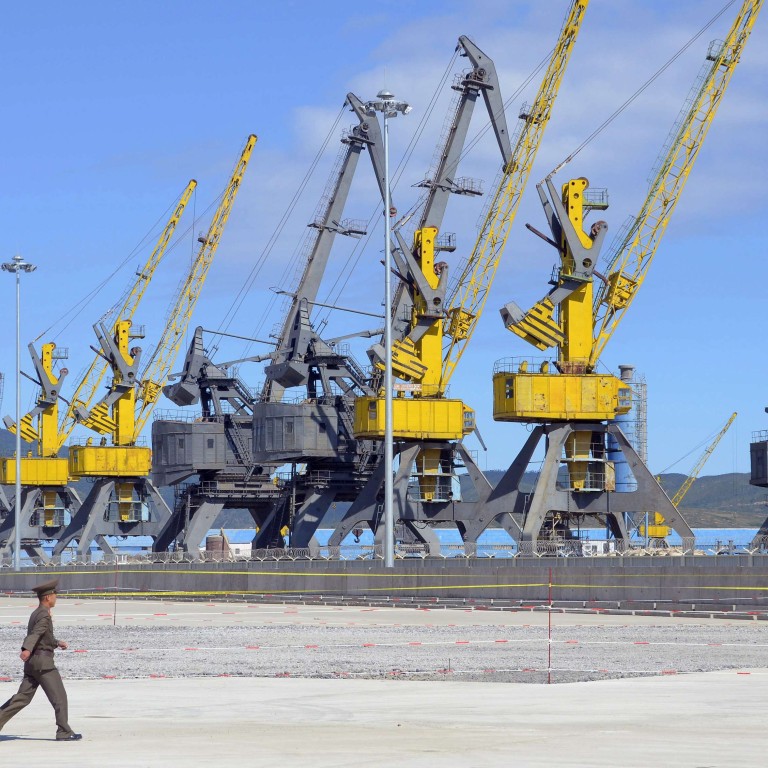
How did Hong Kong become North Korea’s No 2 trading partner?
Hong Kong is part of Beijing’s broader agenda for its trade relations with North Korea, suggest experts
In 2012, Hong Kong became North Korea’s No 2 trading partner with two-way trade reaching US$111 million (HK$861 million), rising 457 per cent from the year before, according to data from a South Korean trade organisation.
Last year alone, the Stalinist country exported US$58 million (HK$450m) worth of goods to Hong Kong and imported items worth nearly US$53 million (HK$411m) from the city, according to a recent report by South Korea’s government-run Korea Trade-Investment Promotion Agency.
The upward trend in two-way trade might be explained as a one-time jump, but experts suggest that Hong Kong may be part of the mainland China’s broader agenda for its relations with North Korea.
“Hong Kong is a tool for Sino-Korean relations because it can play certain functions in pushing forward the relationship between Beijing and North Korea,” explained Steve Chung, a professor of international relations at the Chinese University of Hong Kong.
The rise in trade between North Korea and Hong Kong in recent years coincides with the establishment of a joint industrial zone to be operated by Beijing and Pyongyang.
In June 2011, China and North Korea announced that they agreed to establish the so-called Two Islands Economic Zone on Hwanggumpyong and Wihwa Islands near the Chinese border city of Dandong.
When the agreement was announced, Hong Kong was North Korea’s No 13 trading partner. A year later, in 2012, it had jumped to No 2.
“There have been previous reports that Beijing has encouraged firms in Hong Kong to develop its joint industrial venture with North Korea on Hwanggumpyong Island,” noted Troy Stangarone, the senior director of the Washington-based Korea Economic Institute.
“Significant work on the complex only began last year, so some of the increase we are seeing [in Hong Kong-North Korea trade] could be tied to this development,” added Stangarone.
China was trying to maintain strong trade relations with Pyongyang through Hong Kong because Beijing was under international pressure to distance itself from the rogue state, said Chung.
Last February, North Korea conducted its third nuclear test against the wishes of China. In response, Beijing voted in favour of stronger United Nations sanctions against Pyongyang.
Five months ago, the Bank of China shut the account of North Korea’s main foreign exchange bank, which Washington had accused of helping finance Pyongyang’s nuclear weapons programme.
Even as China scaled backs its dealings with the North Korean regime, recent trade data indicated that Beijing continued to offer economic assistance to Pyongyang.
In the first eight months of 2013, North Korean exports to China rose by 8 per cent from last year to US$1.85 billion as Beijing imported more coal, ore and woven garments, reported South Korea’s Yonhap News Agency.
As China keeps trading with North Korea, trade between Hong Kong and Pyongyang was likely to continue as well, experts said.
Video: Koryo Tour's timelapse of Pyongyang, North Korea
